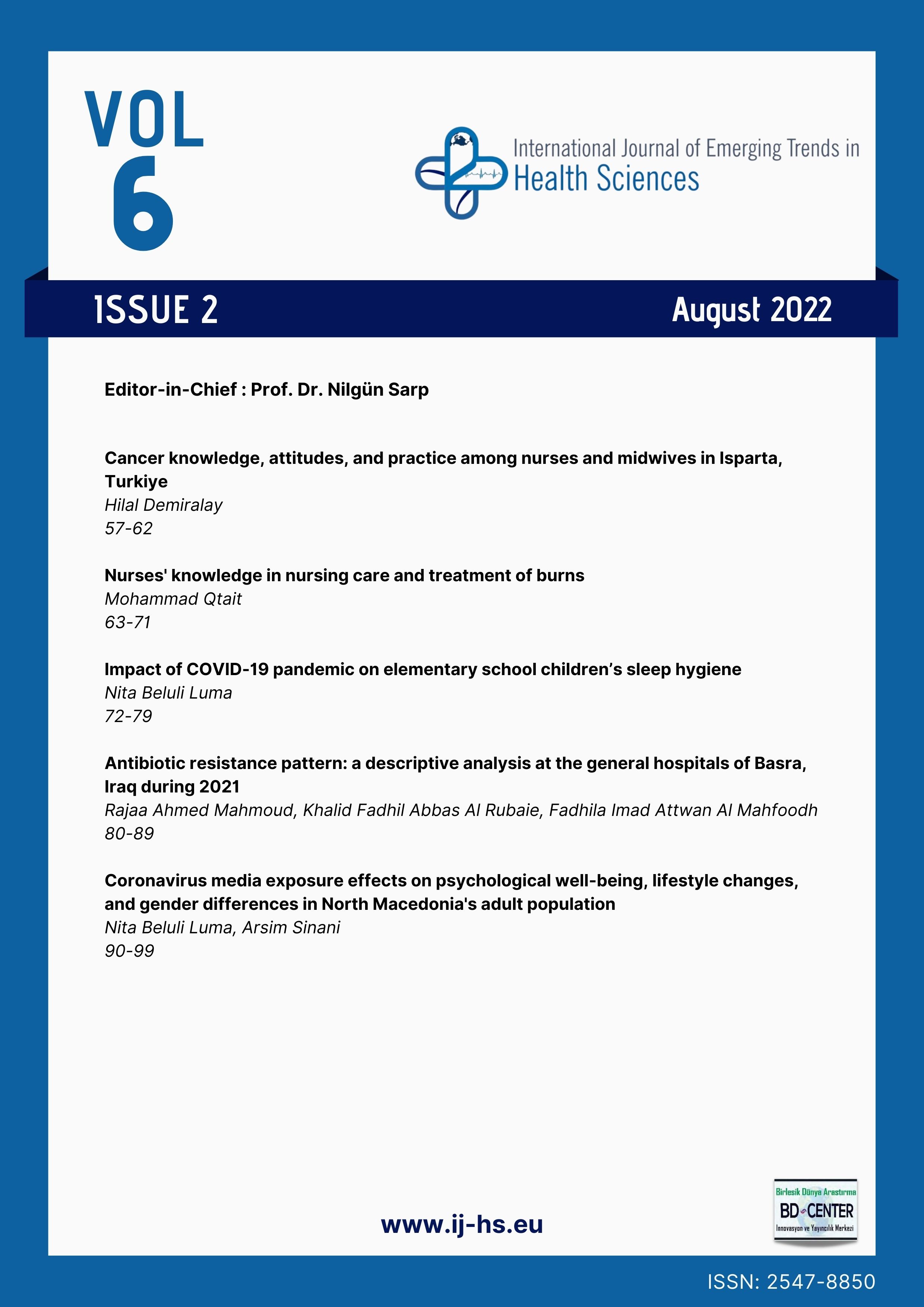Cancer knowledge, attitudes, and practice among nurses and midwives in Isparta, Turkiye
Main Article Content
Abstract
This study aims to investigate the habits, lifestyle, knowledge, attitudes, and practices of nurses and midwives serving in Isparta. Within the scope of the study, data were collected through face-to-face interviews with 300 midwives and nurses aged 19-55 working in Isparta province. Many of the participants in the study stated that the most common type of cancer in women is breast cancer. While most of the participants thought that the most common type of cancer in men was lung cancer, few stated that it was prostate cancer. No statistically significant difference was observed in the knowledge and behaviors of the participants on cancer, according to whether they are midwives or nurses, their income status, and their education level. While nurses and midwives have a high level of risk perception and knowledge about cancer, it has been observed that they do not show the necessary care in control and treatment.
Keywords: Attitudes; cancer; knowledge; midwives; nurses.
Downloads
Article Details

This work is licensed under a Creative Commons Attribution-NonCommercial-NoDerivatives 4.0 International License.
Authors who publish with this journal agree to the following terms:
- Authors retain copyright and grant the journal right of first publication with the work simultaneously licensed under a Creative Commons Attribution License that allows others to share the work with an acknowledgement of the work's authorship and initial publication in this journal.
- Authors are able to enter into separate, additional contractual arrangements for the non-exclusive distribution of the journal's published version of the work (e.g., post it to an institutional repository or publish it in a book), with an acknowledgement of its initial publication in this journal.
- Authors are permitted and encouraged to post their work online (e.g., in institutional repositories or on their website) prior to and during the submission process, as it can lead to productive exchanges, as well as earlier and greater citation of published work (See The Effect of Open Access).
